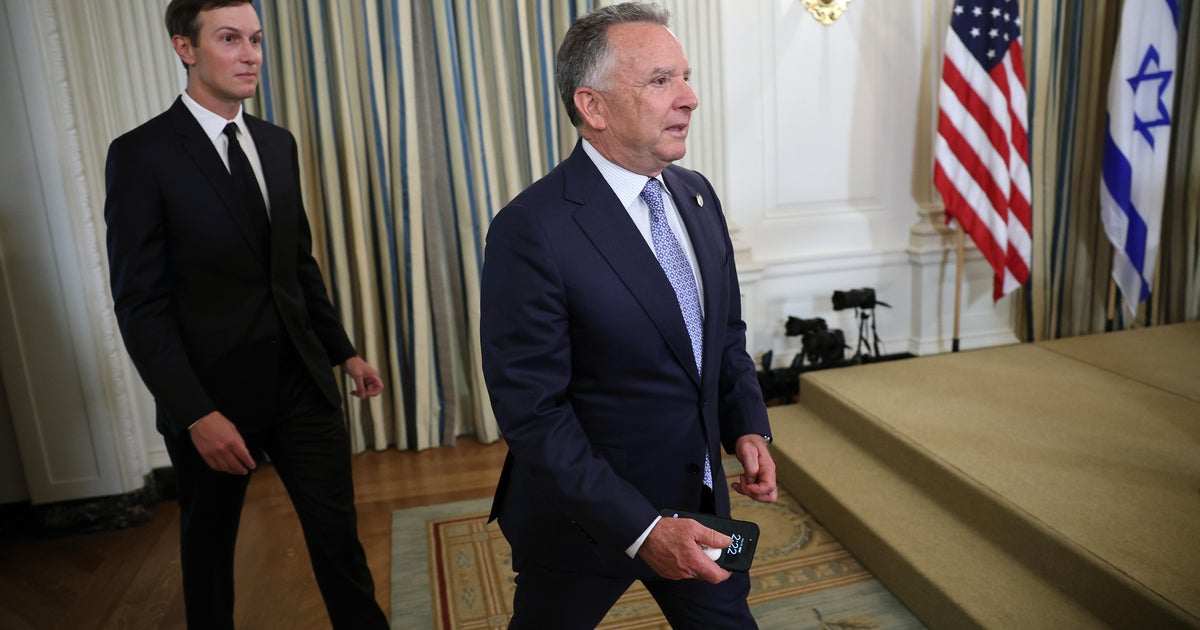An apology phone call from Israeli Prime Minister Benjamin Netanyahu and a moment of personal connection between U.S. special envoy Steve Witkoff and Hamas’ top negotiator marked two key turning points leading to the ceasefire in Gaza.
Witkoff and Jared Kushner, entrusted by President Trump to broker the deal, opened up about what it took to make it happen in an exclusive interview with 60 Minutes.
Late last month, just weeks after peace talks broke down over Israeli airstrikes targeting Hamas leaders in Qatar, Mr. Trump announced his 20-point plan to end the war during a meeting with Netanyahu at the White House. That day, the president facilitated a phone call between Netanyahu and Qatari Prime Minister Mohammed bin Abdulrahman bin Jassim Al Thani. Whether Mr. Trump himself knew of the Israeli airstrike in Qatar in advance or not, he wanted Netanyahu to apologize to the Qataris.
“The apology needed to happen. It just did. We were not moving forward without that apology,” Witkoff said. “And the president said to him, ‘People apologize.'”
Mr. Trump’s plan to end the war called for an immediate ceasefire and a release of all the Israeli hostages at once.
“The notion was to convince everybody that those 20 Israeli hostages who were alive, were no longer assets for Hamas. They were a liability,” Witkoff said.
Kushner explained what that meant.
“What did Hamas gain by keeping these hostages? You had tens of thousands of Palestinians who were killed in these wars,” Kushner said.
Huge swaths of Gaza were also destroyed during the war, but Hamas was still reluctant to agree to a deal, fearing that if they released the hostages, Israel would resume attacks, Kushner said.
In a break with diplomatic protocol, Mr. Trump gave Kushner and Witkoff permission to speak directly with Hamas, despite its designation as a terrorist group. The two landed in Egypt on Oct. 8 to meet with top Hamas negotiator Khalil al-Hayya, whose son was among six killed by Israel’s airstrike on Qatar.
“We expressed our condolences to him for the loss of his son. He mentioned it. And I told him that I had lost a son, and that we were both members of a really bad club, parents who have buried children,” Witkoff said.
Witkoff’s son, Andrew, died of an opioid overdose at the age of 22.
“When Steve and him spoke about their sons, it turned from a negotiation with a terrorist group to seeing two human beings kind of showing a vulnerability with each other,” Kushner said.
Kushner and Witkoff said Mr. Trump had guaranteed that the U.S. would stand behind the deal, that both sides would be treated fairly and that the U.S. would not allow the deal to be violated.
Once a deal was finally reached, Witkoff says Israelis and Qataris at the meeting hugged.
“I thought to myself, ‘I wish the world could’ve seen it,'” Witkoff said.
Watch Lesley Stahl’s full report on “The Dealmakers” in the video player above, including what Witkoff and Kushner have to say about the next phase of the peace plan for Gaza. An extended version will be available Sunday night on 60 Minutes Overtime and the 60 Minutes YouTube channel.

